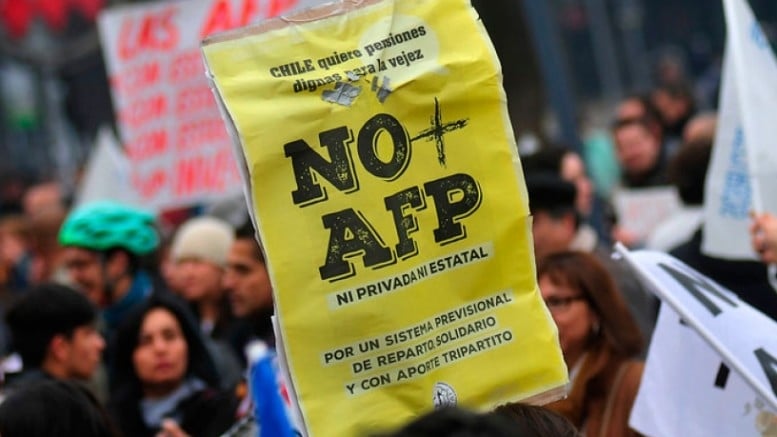
SANTIAGO – President Michelle Bachelet has proposed dramatic increase in the size of public pensions amid growing opposition to the current system in Chile.
The bill seeks to reform the pension system by a strong increase of up to 20% in the amounts of current pensions, which will be funded by collective savings
“We all know for a long time that in Chile pensions are insufficient, that many suffer a huge decrease in their income when they retire, particularly in the case of women and the middle class,” she said in her Wednesday’s address.

“We have to assume that the changes must be gradual and viable,” she affirmed.
Five percent of the additional contribution will be borne by the employer and will have two destinations: 3% will go to the worker’s inheritance and 2% will go to collective savings insurance.
Current pensioners would see savings rise by around 20 percent, while workers currently paying into the system would see increases of up to 50 percent.
This bold proposal to improve pensions in Chile, one of the headaches of society at the moment, leaves the scene ready for debate in Congress and within social movements.
The initiative of the President of the Republic, Michelle Bachelet, detailed a few hours ago on the national radio and television network with previous little notice, found a notable media impact in the face of relative surprise.
In fact, the president decided to take the risks personally after seven months of negotiations and ideas about them did not advance sufficiently, while the citizenship manifested again multitudinously.
“We must move towards a truly mixed pension system, where everyone plays their part, where solidarity goes hand in hand, where the State and employers play their part,” she stated.
The head of state explained that the administration of this system “will fall into a public and autonomous entity, with strict rules and high professional requirements, so that no one can question its efficiency, transparency and independence.”
On March 26, nearly one million Chileans marched through the country as part of the NO + AFP movement, referring to the current mechanism of pension fund managers, according to their contributors.

Without referring directly to the protests, Bachelet pointed out that in order to respond to the legitimate demand for transparency of the AFP system, the government proposes that members participate in the definition of investment policies. “Likewise, in the policies for resolving conflicts of interest,” she expressed.
The reform of the pension system, however, does not include an increase in the retirement age of men and women.
Chile’s privatized pension plan was started in the 1980s during the dictatorship of Augusto Pinochet, and the so-called ‘Chilean model’ has been copied and adopted worldwide.
Under Michelle Bachelet’s government the Chile Pension system was reformed again.
But opposition to it is rising in Chile, with regular street protests demanding changes. Opponents say the payouts are meager, and they complain the pensions are managed by for-profit funds.
It is unclear, however, if Bachelet’s bill can become law. Her governing coalition is severely divided, and parliamentary elections are set to take place in November, while debate on complex bills can take years in Chile.
Earlier in April, Chile’s finance minister said divisions in the government might make any pension reform impossible, and earlier this week, a major education bill pushed by Bachelet failed in committee.



